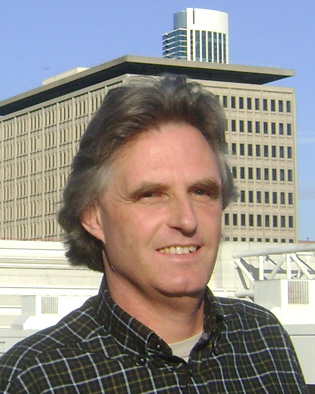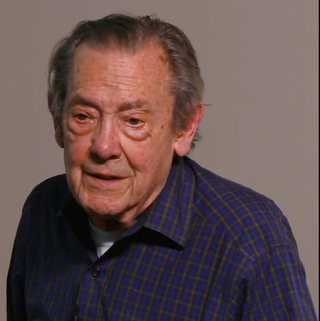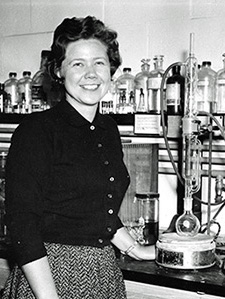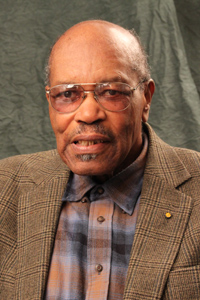Related Research Articles

The University of the Cumberlands is a private Christian university in Williamsburg, Kentucky. Over 20,000 students are enrolled at the university.

The National Speleological Society (NSS) is an organization formed in 1941 to advance the exploration, conservation, study, and understanding of caves in the United States. Originally headquartered in Washington D.C., its current offices are in Huntsville, Alabama. The organization engages in the research and scientific study, restoration, exploration, and protection of caves. It has more than 10,000 members in more than 250 grottos.
The Linnean Society of London is a learned society dedicated to the study and dissemination of information concerning natural history, evolution, and taxonomy. It possesses several important biological specimen, manuscript and literature collections, and publishes academic journals and books on plant and animal biology. The society also awards a number of prestigious medals and prizes.

Cold Spring Harbor Laboratory (CSHL) is a private, non-profit institution with research programs focusing on cancer, neuroscience, plant biology, genomics, and quantitative biology. It is located in Laurel Hollow on Long Island, New York.
The Jawaharlal Nehru Centre for Advanced Scientific Research (JNCASR) is a multidisciplinary research institute located at Jakkur, Bangalore, India. JNCASR was established by the Department of Science and Technology of the Government of India as a centre for advanced scientific research in India, to mark the birth centenary of Pandit Jawaharlal Nehru, the first prime minister of independent India. In 2019, JNCASR was ranked #7 among the world's top ten research institutes and universities by Nature journal in a normalised ranking of research institutes and universities with high quality output.

The Society for Conservation Biology (SCB) is an 501(c)(3) non-profit international professional organization that is dedicated to conserving biodiversity. There are over 4,000 members worldwide, including students and those in related non-academic sectors.There are 35 chapters throughout the world.
James David Ebert was an American biologist and administrator.

The Royal Society of Biology (RSB), previously called the Society of Biology, is a learned society and professional association in the United Kingdom created to advance the interests of biology in academia, industry, education, and research. Formed in 2009 by the merger of the Biosciences Federation and the Institute of Biology, the society has around 18,000 individual members, and more than 100 member organisations. In addition to engaging the public on matters related to the life sciences, the society seeks to develop the profession and to guide the development of related policies.
Edward Loranus Rice (1871-1960) was a biologist and educator who served as the acting president of Ohio Wesleyan University. He was best known for his 1924 debate with William Jennings Bryan on the topic of biological evolution and serving as a scientific consultant to Clarence Darrow before the 1925 Scopes trial.
J. Whitfield "Whit" Gibbons is an American herpetologist, author, and educator. He is Professor Emeritus of Ecology, University of Georgia, and former Head of the Environmental Outreach and Education program at the Savannah River Ecology Laboratory (SREL).
The Association of Applied Biologists (AAB) is a United Kingdom biological science learned society. From its foundation in 1904 until 1934, the institution was the Association of Economic Biologists. It publishes research and holds conferences in different specialisms of applied biology.

Ulrich Kutschera is a former German professor of biology who works as an academic advisor at I-Cultiver, Inc. in San Francisco and as a visiting scientist in Stanford/Palo Alto, California, US. He is the founder and head of "AK Evolutionbiologie", an association of evolutionary biologists in Germany. Starting in the 2000s, Kutschera started engaging with the public, first as a critic of creationism and intelligent design. Since the mid-2010s, his public statements and popular books focused on climate skepticism and criticism of gender studies.
The Southern Appalachian Botanical Society is an American botanical society formed in 1935 at West Virginia University. The focus of the society has gradually changed and now includes the botany of the entire eastern United States, including the taxonomy, biogeography, ecology, physiology, and biochemistry of plants. The society has about 500 members.

Winslow Russell Briggs was an American plant biologist who introduced techniques from molecular biology to the field of plant biology. Briggs was an international leader in molecular biological research on plant sensing, in particular how plants respond to light for growth and development and the understanding of both red and blue-light photoreceptor systems in plants. His work has made substantial contributions to plant science, agriculture and ecology.
Mary Bownes OBE FRSE FRES FRSB is an English molecular and developmental biologist; she is Vice Principal Community Engagement and Emerita Professor of Developmental Biology at the University of Edinburgh. She has taught genetics, molecular biology and developmental biology at all levels and was previously Head of the Institute of Cell and Molecular Biology at the University from 1998 to 2001.

Jean H. Langenheim was an American plant ecologist and ethnobotanist, highly respected as an eminent scholar and a pioneer for women in the field. She has done field research in arctic, tropical, and alpine environments across five continents, with interdisciplinary research that spans across the fields of chemistry, geology, and botany. Her early research helped determine the plant origins of amber and led to her career-long work investigating the chemical ecology of resin-producing trees, including the role of plant resins for plant defense and the evolution of several resin-producing trees in the tropics. She wrote what is regarded as the authoritative reference on the topic: Plant Resins: Chemistry, Evolution, Ecology, and Ethnobotany, published in 2003.
The International Society for the History, Philosophy, and Social Studies of Biology (ISHPSSB) is an international academic organization founded in 1989. THe society hosts the largest and most important meeting for the fields of philosophy of biology, history of biology, and the social studies/science studies/sociological studies of biology. The society hosts a biennial meeting, supports off-year workshops, runs a monthly newsletter, and offers various types of academic prizes.

Lafayette Frederick was an American plant pathologist, mycologist, and specialist in myxomycete ecology and systematics.
Margaret Young Menzel was a geneticist known for her research on chromosomes and meiosis in a range of organisms including tomatoes, flowering plants, and worms. Menzel was also an advocate for equal opportunities for women and led a 1972 class action suit against Florida State University.
References
- ↑ "ASB". www.sebiologists.org. Association of Southeastern Biologists.
- ↑ "Home". Association of Southeastern Biologists. Retrieved 2015-11-03.
- 1 2 3 4 5 Herr, John (April 2012). "A brief summary of the events in the life of the association of southeastern biologists, The history of the association: An overview" (PDF). Southeastern Biologist. Archived from the original (PDF) on 5 March 2016. Retrieved 3 October 2015.
- ↑ "National Center for Science Education" (PDF).
- ↑ "Nonprofit Profile for ASSOCIATION OF SOUTHEASTERN BIOLOGISTS". www.guidestar.org. Retrieved 2015-11-18.
- ↑ "Membership | Southern Appalachian Botanical Society | Appalachian State University". sabs.appstate.edu. Archived from the original on 2015-02-18. Retrieved 2015-11-03.[ dead link ]
- ↑ "SEC/ESA Bylaws". www.auburn.edu. Archived from the original on 2013-09-24. Retrieved 2015-11-03.
- ↑ "Association of Southeastern Biologists". www.pulsecommunity.org. Retrieved 2015-11-18.
- ↑ "Southeast Section/Association of Southeastern Biologists Student Travel/Presentation Awards". cms.botany.org. Retrieved 2015-11-18.
- ↑ Herr, John M. (April 2012). "A brief summary of the events in the life of the Association of Southeastern Biologists" (PDF). Southeastern Biology. Archived from the original (PDF) on March 5, 2016. Retrieved October 5, 2015.
- ↑ "ABS Elected Officers". Association of Southeastern Biologists. Retrieved 2023-04-12.